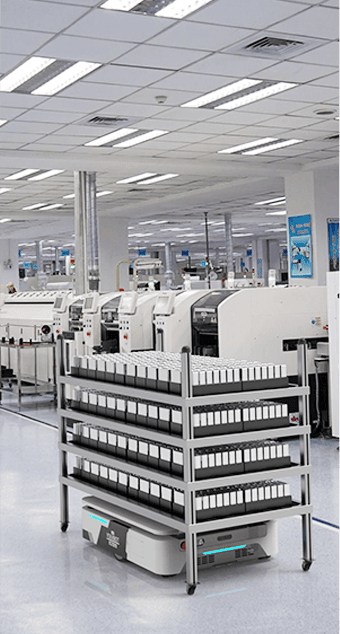As an industrial robot company enthusiast, I have always been fascinated by the advancements and innovations in this field. Today, I would like to explore the topic of flexibility in decision-making for B2B within the context of industrial robot companies.
The Importance of Flexibility in Industrial Robot Companies

In today’s rapidly evolving business landscape, industrial robot companies need to be agile and adaptable to stay competitive. Flexibility in decision-making plays a crucial role as it allows these companies to respond quickly to market changes, customer demands, and emerging technologies.
By embracing flexibility, industrial robot companies can efficiently adjust their strategies, production processes, and product offerings based on real-time data analysis and market insights. This enables them to seize new opportunities swiftly while minimizing risks associated with outdated or ineffective approaches.
Youibot: A Leading Example
An exemplary case that highlights the significance of flexibility is Youibot – a prominent player in the industrial robotics industry. With its cutting-edge technology and innovative solutions, Youibot has successfully established itself as a frontrunner.
Youibot’s commitment to flexibility is evident through its ability to customize robotic systems according to specific client requirements. By offering tailored solutions instead of one-size-fits-all products, Youibot ensures maximum efficiency and effectiveness for its customers across various industries.
This level of adaptability not only enhances customer satisfaction but also strengthens Youibot’s position as an industry leader capable of meeting diverse needs effectively.
The Role of Industrial Automation
industrial automation is another key aspect closely related to flexibility within industrial robot companies. It involves integrating advanced technologies such as artificial intelligence (AI), machine learning (ML), and Internet of Things (IoT) to streamline processes, improve productivity, and optimize decision-making.
By leveraging industrial automation, companies can automate repetitive tasks, reduce human error, and enhance overall operational efficiency. This allows them to allocate resources more effectively while empowering employees to focus on higher-value activities that require creativity and critical thinking.
Furthermore, industrial automation enables real-time data collection and analysis, providing valuable insights for informed decision-making. By harnessing the power of big data analytics, industrial robot companies can identify trends, predict market demands accurately, and make proactive adjustments in their strategies or product development plans.
Conclusion
In conclusion, flexibility in decision-making is a vital factor for success within the B2B landscape of industrial robot companies. The case study of Youibot exemplifies how embracing flexibility can lead to customer satisfaction and industry leadership. Additionally, integrating industrial automation technologies further enhances adaptability by optimizing processes and enabling data-driven decisions.
To thrive in today’s dynamic business environment characterized by rapid technological advancements and changing customer needs – it is imperative for industrial robot companies to prioritize flexibility in their decision-making processes.


